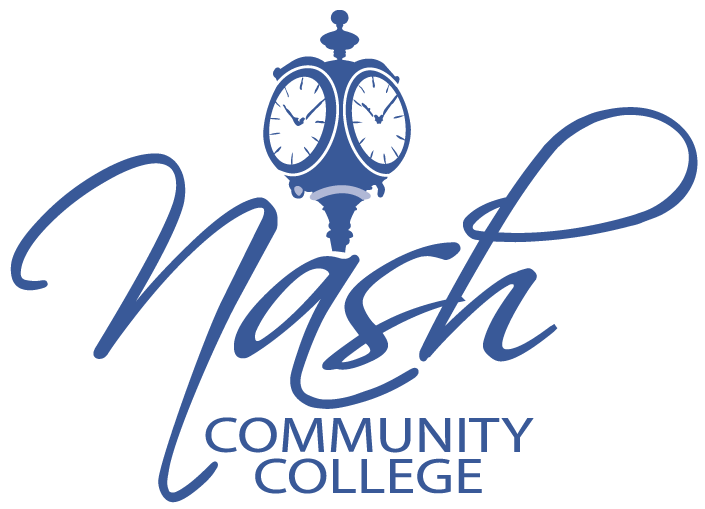Overview
Nash Community College’s Emergency Medical Services program is a comprehensive approach to the delivery of emergency medical care to the critically ill and injured. There are many key components that make up this system, including transportation, communication, manpower and training, organization, evaluation, standard record-keeping, and public education.
The focus of Nash Community College is to meet the training needs of each component for the overall growth and development of a successful EMS system. Nash Community College offers American Heart Association (AHA) and EMS training in the following categories:
- EMS-3048 Advanced Cardiac Life Support (ACLS)
- EMS-4302 Advanced Emergency Medical Tech. (AEMT)
- EMS-3200K AHA Cardiopulmonary Resuscitation (CPR)
- SEF-3001LU AHA First Aid
- EMS-3104 AHA Instructor Certification
- EMS-3200B Brain Trauma Foundation – Provider
- EME-3500 Emergency Dispatch Academy
- EMS-3200C EMS Instructor Training
- EMS-3081 Emergency Medical Dispatcher (EMD)
- ICV-3111A Electrocardiography Technician
- EMS-4200 Emergency Medical Tech. (EMT)
- EMS-3095 First Responder
- EMS-3041 International Trauma Life Support (ITLS)
- Medical Responder
- EMS-4400 Paramedic
- EMS-3046 Pediatric Advanced Life Support (PALS)
What You'll Learn
The first step to an EMS career is to complete the Emergency Medical Technician Basic course. This 288-hour course is designed to meet the needs of a new EMT in the pre-hospital setting and establish the knowledge for successful completion of the State EMT Certification test. Nash Community College offers this course multiple times during the year in a traditional evening class setting or our 8-week EMT Academy.
The EMT Academy has additional requirements as outlined in the EMT Academy application. This application should be submitted to the Coordinator of Emergency Medical Services.
All courses utilize an online aspect for testing or assignments. Students will be required to have internet access and a valid email address. Computer stations are available in the Nash Community College library to assist as a resource.
Career Opportunities
Once certification courses are complete, students will be eligible to sit for the North Carolina State Office of EMS test for that discipline.
Upon completion of the EMT course, students who wish to pursue an Advanced Life Support Credential have the option of moving into the Advanced EMT or the Paramedic Course. While students holding an EMT credential are eligible to enter either course, it is advised that most students begin with Advanced EMT to build the framework for Advanced Life Support care and allow for a smoother transition into a clinical provider status. Advanced EMT is currently offered twice a year, once in the spring and again in the fall. Paramedic is traditionally offered twice a year, beginning in January and August.
Tuition Information
Tuition and fees for all EMS Certification Courses is currently $202.25.
If you are affiliated with an eligible EMS, Fire or Rescue Association, some aspects of the tuition or fees may be waived.
Registration Information
All certification courses require placement testing or successful completion of comparable curriculum college courses prior to registration. If placement testing is required, a referral from our office can be obtained. In most cases, testing can be completed the same day as referral is issued. The college registration form can be completed by clicking the button below.
Submission of this form does not guarantee entrance in the course. Finalization of registration will be conducted once the registration form, test scores or transcript and appropriate payment are received by Nash Community College Continuing Education staff.
Registration can also be completed in person on campus in the Kennon E. Jackson Administrative Offices located on the second floor of the Continuing Education and Public Services Building.
Dates for upcoming courses can be found using our Training Schedule.
Stay up to date by joining the NCC Fire, Rescue and EMS Facebook page.
Nash Community College’s American Heart Association Training Center
Nash Community College is proud to offer American Heart Association (AHA) Training. We currently offer two CPR classes each month and will work to accommodate training requests for AHA courses as much as possible. Pre-registration and payment are required for all CPR courses. Certification cards will not be issued the day of class. Cards are issued within two weeks of course completion for Nash Community College-sponsored courses.
AHA Instructors
We are NOT currently accepting new AHA Instructors.
To become an AHA Instructor, individuals need to have current AHA certification for the discipline in which they wish to pursue an instructor certification. Additionally, prior to entrance into an instructor course, the individuals are required to have aligned with a Training Center by way of the AHA Instructor Network. After successful instructor course completion, instructor candidates must be monitored by Training Center Faculty of the Training Center.
It is the responsibility of the instructor candidate to schedule the course to be monitored and to secure instructor materials and all classroom equipment, including mannequins, for their courses. Nash Community College will not be able to assist with these items. The initial monitoring must be completed within six months of the initial instructor course and all paperwork is submitted to Training Center Coordinator for issuance of instructor card.
Accreditation
The Nash Community College Paramedic program has been issued a Letter of Review by the Committee on Accreditation of Educational Programs for the Emergency Medical Services Professions (CoAEMSP). This letter is NOT a CAAHEP accreditation status, it is a status signifying that a program seeking initial accreditation has demonstrated sufficient compliance with the accreditation standards through the Letter of Review Self Study Report (LSSR) and other documentation. Letter of Review is recognized by the National Registry of Emergency Medical Technicians (NREMT) for eligibility to take the National Registry’s Paramedic credentialing examination(s). However, it is NOT a guarantee of eventual accreditation. To contact CoAEMSP: 214-703-8445 www.
Graduate Outcomes
No Graduates during the 2022 reporting year.





